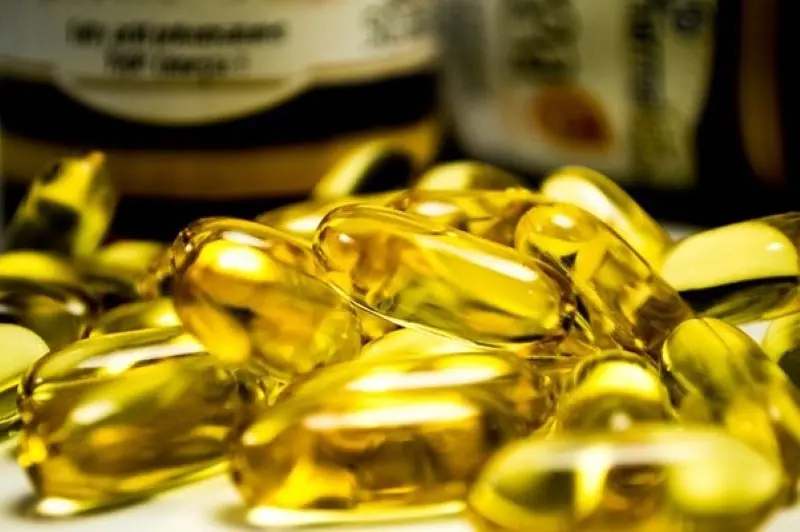¿Cuál es la normativa actual sobre las vitaminas y los suplementos alimenticios en España?

Los sucesos ocurridos en los últimos años han ido creando un nivel de concienciación nacional y global sobre algunos de los hábitos más usuales de todos los ciudadanos. Además, los cada vez más habituales movimientos ecológicos están consiguiendo que muchas personas estén más preocupadas por el medio ambiente y por consumir alimentos y productos orgánicos o naturales con el objetivo de mantener un buen estado de salud y evitar el deterioro del medio ambiente.
Por ello, cada vez hay más personas que pretenden mejorar su salud de manera natural, sin recurrir a la medicina tradicional (aunque ya hablamos de cierto tipo de “medicación” que nunca deberíamos dejar de lado).
Uno de los sectores que está creciendo en los últimos años es el sector de las tiendas de vitaminas y otros productos relacionados con los suplementos alimenticios. Hay ciertos factores que pueden estar influyendo en esto.
Por poner un ejemplo, recientemente se conoció un estudio que llevó a cabo una profesora de los Estudios de Ciencias de la Salud de la Universidad de Cataluña. Este estudio ha demostrado que una buena parte de la población de nuestro país carece de la suficiente Vitamina D, la conocida como vitamina del sol. Esto es algo bastante peculiar, puesto que vivimos en un país que se caracteriza por sus buenas dosis de sol. Por eso, hay una cierta preocupación en la sociedad que busca maneras alternativas de obtener esta vitamina, esencial para nuestro organismo.
Sin embargo, no todo el mundo conoce la normativa respecto a este sector en España. En este artículo vamos a mencionar cómo ha ido cambiando la normativa sobre este sector con el paso de los años.
¿Cómo ha ido cambiando la normativa sobre vitaminas y complementos alimenticios en España?
La primera normativa aplicada a los complementos alimenticios es relativamente reciente, pues apareció en el año 2002 mediante la Directiva 2002/46/CE del Parlamento Europeo y del Consejo.
Sin embargo, esta Directiva a nivel europeo, solo creó una normativa relacionada con las vitaminas y minerales y solo en algunas formas químicas. Además, en ese momento, esta legislación no se pronunció sobre otros tipos de nutrientes, como aminoácidos, ácidos grasos esenciales, fibras y plantas y extractos de hierbas.
Esta Directiva se limitó a dejar en manos de cada país del estado europeo esta normativa respecto a estos nutrientes para establecer posteriormente una legislación ampliada cuando se tuvieran más datos científicos al respecto.
En España, esta Directiva se traspuso en 2003, con la publicación del Real Decreto 1275/2003, en el que se refiere a los complementos alimenticios. Este Real Decreto hizo que nuestro país por fin tuviera una legislación en cuanto a vitaminas y complementos alimenticios después de un largo periodo en el que había un pequeño limbo en este sector
Sin embargo, esta legislación aprobada en 2003 fue un poco más allá de la Normativa europea y estableció una cantidad máxima de vitaminas y minerales recomendados que no se encontraba en la Normativa Europea.
Solo unos años después, en 2009, este Real Decreto se derogó y fue cambiado por el Real Decreto 1487/2009 con una legislación específica sobre los complementos alimenticios.
Finalmente, hubo una posterior modificación pocos años después, en el año 2018, con el Real Decreto 30/2018, donde se incluyó un tercer anexo relativo a otras sustancias que se pueden utilizar para fabricar estos productos.
Como hemos podido comprobar, la normativa en este sector ha cambiado mucho en los últimos años, pues se pasó de un marco legal poco específico a uno mucho más definido en años recientes.
English
What are the current regulations on vitamins and food supplements in Spain?
The events that have occurred in recent years have been creating a level of national and global awareness about some of the most common habits of all citizens. In addition, the increasingly common ecological movements are making many people more concerned about the environment and about consuming organic or natural foods and products with the aim of maintaining a good state of health and avoiding the deterioration of the environment.
Therefore, more and more people are trying to improve their health in a natural way, without resorting to traditional medicine (although we are already talking about certain types of "medication" that we should never leave aside).
One of the sectors that is growing in recent years is the sector of vitamin shops and other products related to food supplements. There are certain factors that may be influencing this.
To give an example, a study was recently published that was carried out by a professor at the Faculty of Health Sciences of the University of Catalonia. This study has shown that a good part of the population of our country lacks sufficient Vitamin D, known as the sunshine vitamin. This is something quite peculiar, since we live in a country that is characterized by its good doses of sunshine. For this reason, there is a certain concern in society that seeks alternative ways to obtain this vitamin, essential for our organism.
However, not everyone knows the regulations regarding this sector in Spain. In this article we are going to mention how the regulations on this sector have been changing over the years.
How have the regulations on vitamins and food supplements been changing in Spain?
The first regulation applied to food supplements is relatively recent, appearing in 2002 through Directive 2002/46/EC of the European Parliament and of the Council.
However, this Directive at European level, only created a regulation related to vitamins and minerals and only in some chemical forms. Moreover, at that time, this legislation was silent on other types of nutrients, such as amino acids, essential fatty acids, fiber and plant and herbal extracts.
This Directive was limited to leaving the regulation of these nutrients in the hands of each country of the European state in order to establish later an extended legislation when more scientific data were available.
In Spain, this Directive was transposed in 2003, with the publication of Royal Decree 1275/2003, which refers to food supplements. This Royal Decree meant that our country finally had legislation on vitamins and food supplements after a long period in which there was a small limbo in this sector.
However, this legislation passed in 2003 went a little further than the European Regulation and established a maximum amount of recommended vitamins and minerals that was not found in the European Regulation.
Only a few years later, in 2009, this Royal Decree was repealed and changed by Royal Decree 1487/2009 with specific legislation on food supplements.
Finally, there was a subsequent amendment a few years later, in 2018, with Royal Decree 30/2018, where a third annex was included regarding other substances that can be used to manufacture these products.
As we have been able to verify, the regulations in this sector have changed a lot in recent years, as they went from a legal framework that was not very specific to a much more defined one in recent years.









